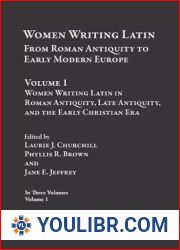
BOOKS - Voices from Within: Women Who Have Broken the Law (Heritage)


US $7.80

874391

874391
Voices from Within: Women Who Have Broken the Law (Heritage)
Author: Evelyn K. Sommers
Year: June 14, 1995
Format: PDF
File size: PDF 8.9 MB
Language: English
Year: June 14, 1995
Format: PDF
File size: PDF 8.9 MB
Language: English
Women in conflict with the law have their own ideas about why and how they became law breakers. Experts tell us who these women are and why they break the law, usually igonroing of discrediting the opinions of the women themselves. As a counselling and research intern in a women's medium-security prison, Evelyn K. Sommers heard the stories of dozens of women inmates who came for counselling. Their crimes were related to prostitution, drug abuse, theft, physical abuse, assault, and arson. Most of the women had been imprisoned several times before. Their stories called into question existing theoretical explanations for criminal behaviour as well as the explanations commonly heard in the day-to-day discourse of the prison. Sommers came to the conclusion that attempts to help women in conflict with the law can be effective only if they take into account the women's understanding of what happened to them in the course of their lifetime. She resolved to conduct intensive interviewa with fourteen women and to find the common threads in their stories, threads that might prove useful in furthering our understanding of women's conflicts with the law. Sommers presents the women's accounts of their actions, thoughts, and feelings, without excusing, condemning them, and without moulding their explanations for their behaviour to some ideological model. Four common reasons or themes emergedfrom the women's accounts: need; disconnection and the influence of others, visible anger; and fear. Further analysis uncovered two implicit underlying themes that were present in all of the women's stories; namely, the centrality of relationships in their lives and their personal quest for empowerment. Voices from Within demonstrates the importance of conducting separate studies of male and female lawbreakers including women as a focus of study; of relying on subjective perspectives to distinguish amd appropriately address differences inherent in the criminal population; and of reconceptualizing of the notion of motivation. Sommers concludes with suggestions for further research, and for practical approaches to working with lawbreakers.














































